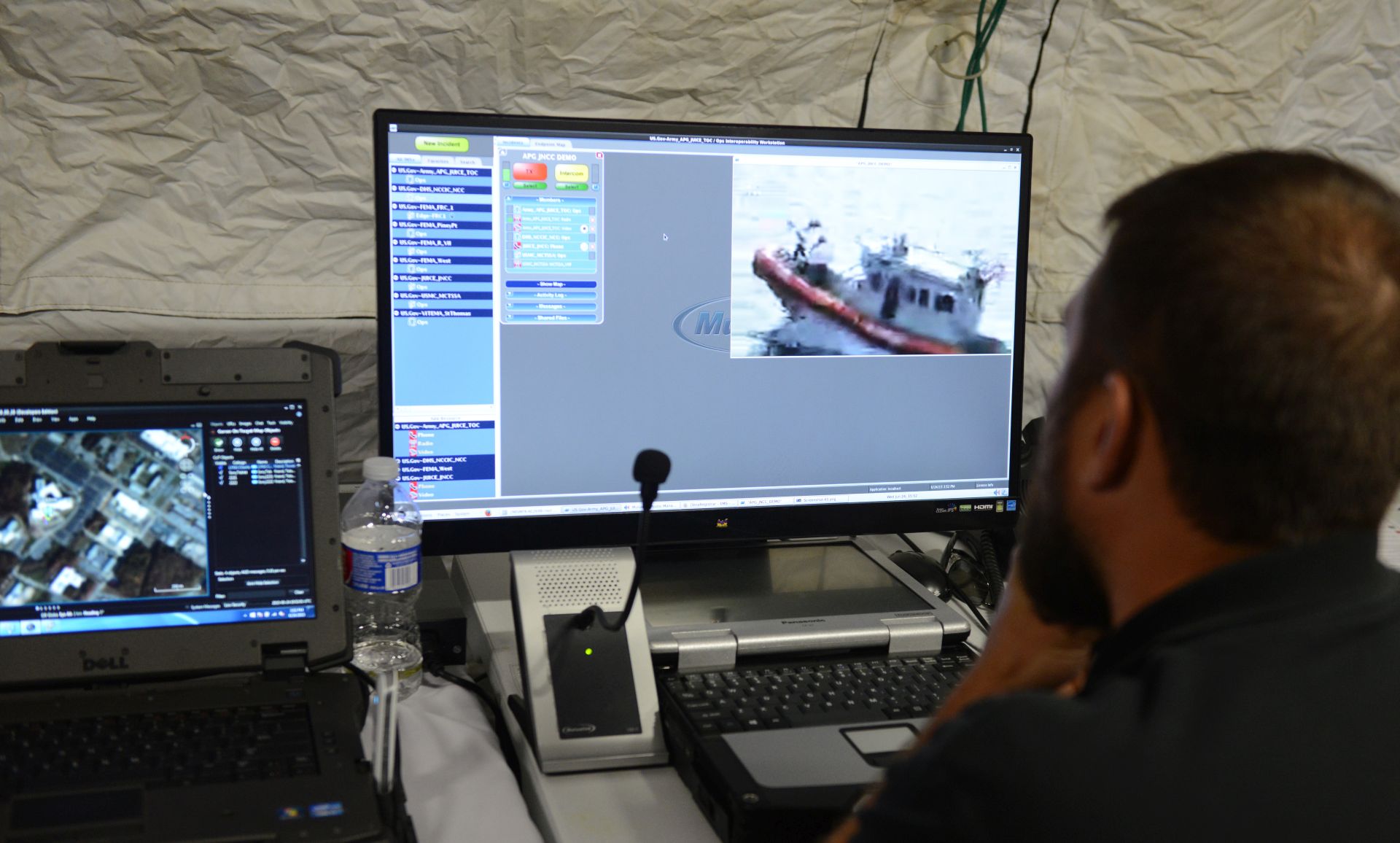An orchestra sounds better if everyone’s on the same sheet of music. Having everyone on the same sheet of music also applies to all participants in a military operation or homeland security emergency response.
Trouble is, the Department of Defense, Department of Homeland Security, first responders like the National Guard and State Police, as well as partner-nation militaries, are all on different sheets of music, since each developed its own unique network, which may or may not communicate well with the others, John Kahler said.
Rather than rebuild a new, compatible network for everyone from scratch – an undertaking that would be prohibitively expensive and time-consuming – a bridging capability called Multimedia Gateway, or MMG, was developed to facilitate cross-talk between existing networks, even legacy ones, he said.
Kahler, an Army civilian, is chief of the Joint On-demand Interoperability Network, or JOIN. He and cyber warriors from every military branch and 11 partner nations, including Poland, were here participating in the 22nd annual Joint Users Interoperability Communications Exercise, or JUICE, a U.S. Army Communications-Electronics Command event sponsored by the U.S. Strategic Command.
This was the first year MMG was incorporated into JUICE, with the Federal Emergency Management Agency, or FEMA, participating in a successful validation process, he said.
Validation means that MMG was rigorously tested to ensure FEMA communications flowed smoothly across the Department of Defense and other agencies. All of the testing took place in a hostile, real-world, real-time environment, he said. There was nothing academic about it.
It was considered hostile because state and non-state actors were actively trying to hack into the system. The Army shared its tactics, techniques and procedures, or TTPs, with FEMA for dealing with all the mischief, he added.
It’s a big deal that FEMA and DHS are actively participating in JUICE this year and are adopting MMG, Kahler said, because of Executive Order 13618 of July 6, 2012, “Assignment of National Security and Emergency Preparedness Communications Functions.”
Now, besides just the military having secure communications during an emergency, other agencies have developed “new, out-of-band communications capability for continuity of government and state communications in the event we lose current communications infrastructure,” he said. “When you start supporting executive orders, that’s pretty significant.”
Executive Order 13618 was predated by the original order going back to President Abraham Lincoln, authorizing the Army to take over commercial communications in advent of an emergency, Kahler said, noting that the telegraph was the Internet of those times.
Bruce Oehler, a contractor for MMG, explained that continuity of government doesn’t just include people in data centers. Anyone with a phone, iPad, radio or laptop anywhere could be authenticated and log onto the secure network. So DHS drone images, for example, could be shared with the Guard and the Guard could share its imagery or other content.
Even hospitals and fire stations are using MMG, he said, since they’re also an integral part of the first responders.
Besides using MMG to communicate with the Department of Defense at JUICE, DHS is learning to monitor its network for attacks by reviewing logs to find peculiar patterns, Oehler said. Attacks can even come from addresses or countries considered normally safe, he said. “We know what networks are supposed to be doing so we can detect differences” in normal traffic and pick out anomalies.
Should an anomaly occur, DHS personnel are learning how to isolate that portion of the network so possible infections don’t spread. Rules or protocols are used to contain any damage. Protocols are continually updated and revised as new threats emerge.
Kahler said that a Red Team or opponent force doesn’t need to be created at Aberdeen or within the Department of Defense, because it’s under continual attack.
He added that it’s a lot better getting all the communication pieces in place now, rather than in a time of war or national emergency.










